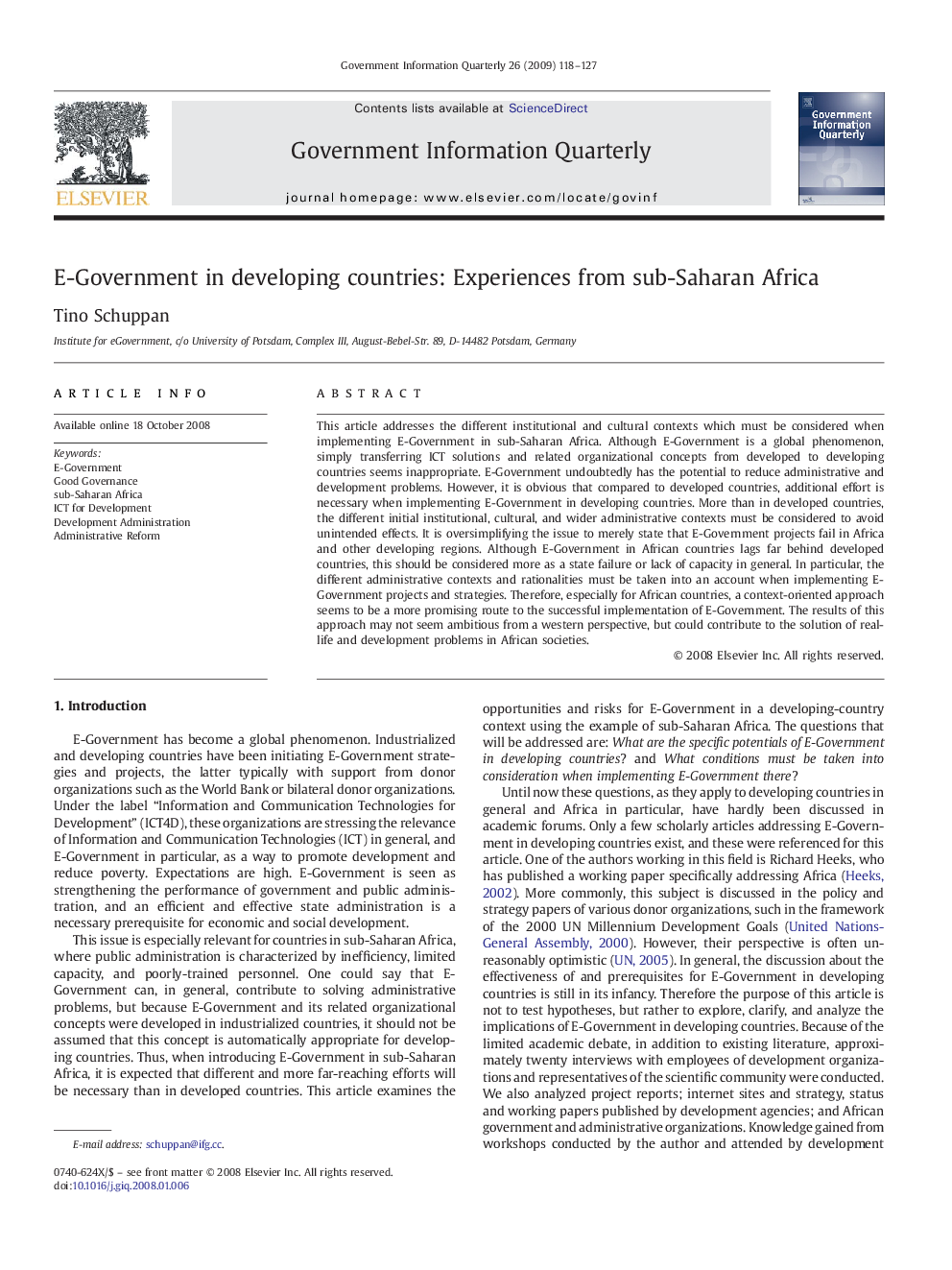| کد مقاله | کد نشریه | سال انتشار | مقاله انگلیسی | نسخه تمام متن |
|---|---|---|---|---|
| 1024791 | 941768 | 2009 | 10 صفحه PDF | دانلود رایگان |

This article addresses the different institutional and cultural contexts which must be considered when implementing E-Government in sub-Saharan Africa. Although E-Government is a global phenomenon, simply transferring ICT solutions and related organizational concepts from developed to developing countries seems inappropriate. E-Government undoubtedly has the potential to reduce administrative and development problems. However, it is obvious that compared to developed countries, additional effort is necessary when implementing E-Government in developing countries. More than in developed countries, the different initial institutional, cultural, and wider administrative contexts must be considered to avoid unintended effects. It is oversimplifying the issue to merely state that E-Government projects fail in Africa and other developing regions. Although E-Government in African countries lags far behind developed countries, this should be considered more as a state failure or lack of capacity in general. In particular, the different administrative contexts and rationalities must be taken into an account when implementing E-Government projects and strategies. Therefore, especially for African countries, a context-oriented approach seems to be a more promising route to the successful implementation of E-Government. The results of this approach may not seem ambitious from a western perspective, but could contribute to the solution of real-life and development problems in African societies.
Journal: Government Information Quarterly - Volume 26, Issue 1, January 2009, Pages 118–127